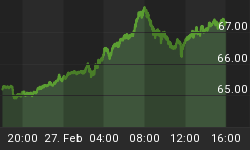In the wake of capital controls in Cyprus and statements by the Dutch finance minister Jereon Dijsselbloem that brought into question the entire notion of deposit insurance in the eurozone, readers are wondering where to safely keep their money.
Concerns heightened when people discovered New Zealand banks have no insurance (see Fraudulent Guarantees; Fictional Reserve Lending; Comparison of US to Cyprus; What About New Zealand?).
Reader Sam asks ...
Hey Mish
What alternatives to "FDIC insured deposits" are out there so we can protect our money?
I'm a daily huge fan and thanks for all your wonderful work.
Sam P
In the US, I do believe deposit insurance will be honored, but it shouldn't be, at least on interest bearing accounts. And the only way deposit insurance could realistically work on non-interest bearing accounts was if there were regulations that banks could not lend deposits available on demand (checking accounts).
Keeping money under the mattress is one obvious answer, but not one that I recommend. Here are some better choices to consider.
Five FDIC Alternatives
- Treasury Direct: You can safely buy short-term US treasuries directly.
- Short-Term Treasury Funds: The iShares Short Treasury Bond ETF (SHV) holds Short-term U.S. Treasury bonds with remaining maturities between 0 and 1 year.
- Brokerage account at places that hold excess cash in treasuries. Not all brokerages hold client cash safely. Interactive Brokers is one of the better ones in my opinion. ETrade nearly went under because of risks it took. See E*Trade Heads For Bankruptcy?
- Physical gold or silver in your possession
- GoldMoney, Bullion Vault, and other places that store precious metals for you.
I prefer GoldMoney to other precious metal holding companies but that is an admittedly biased opinion as I have a relationship with them. Anyone wanting additional information on GoldMoney: Please Email Mish
Again, I do believe deposit insurance will be honored, whether or not it should be, but you certainly do not want to exceed the FDIC limit at any one bank.















